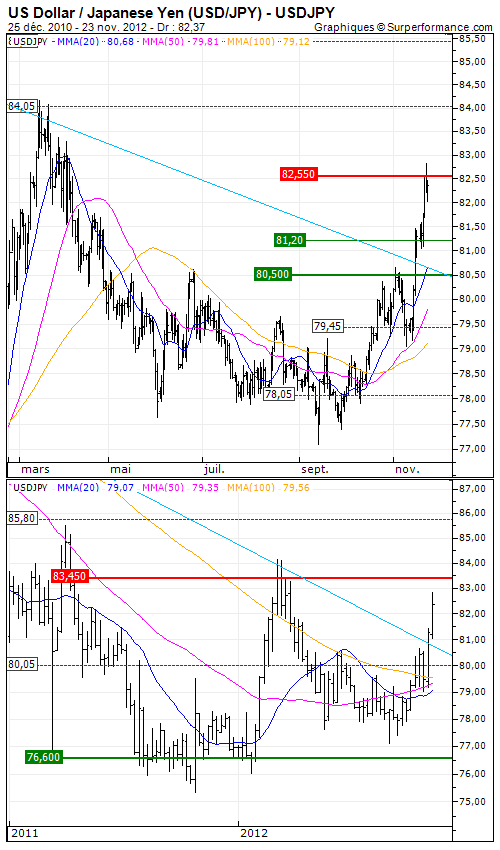US Dollar / Japanese Yen (USD/JPY) : Highest since 7 months
By Mathieu Burbau
After the publication of the highest GDP contraction of the archipelago since the earthquake of March 2011, -3.5% yoy in the third quarter, Prime Minister Yoshihiko Noda announced the holding of early parliamentary elections on 16 December. After three difficult years for the government against the global crisis and natural and nuclear disasters, Shinzo Abe, leader of the Conservative opposition, now appears as the favorite.
His victory seems assured and the government has revised down its growth forecast for the fourth consecutive quarter. In addition, the deficit reached 549 billion yens and in October, against 360 billion expected by economists, mainly due to a fall in exports to China.
In United States, the negotiations on the fiscal cliff seem well. Potential rebound in China, hopes on a new bailout for Greece, Spanish auction and encouraging ceasefire between Israel and Hamas represent the latest positive signals from both sides of the globe.
Technical analysis shows that it is now too late to go buyer. We avoid selling in bull market. However we can enjoy a return to JPY 81.55 to place a purchase order with a target at JPY 83. In December, we will be watching the comments and decisions of monetary policy by the Federal Reserve (12/12) and the BOJ (12/20), four days after the election.





